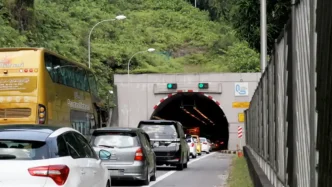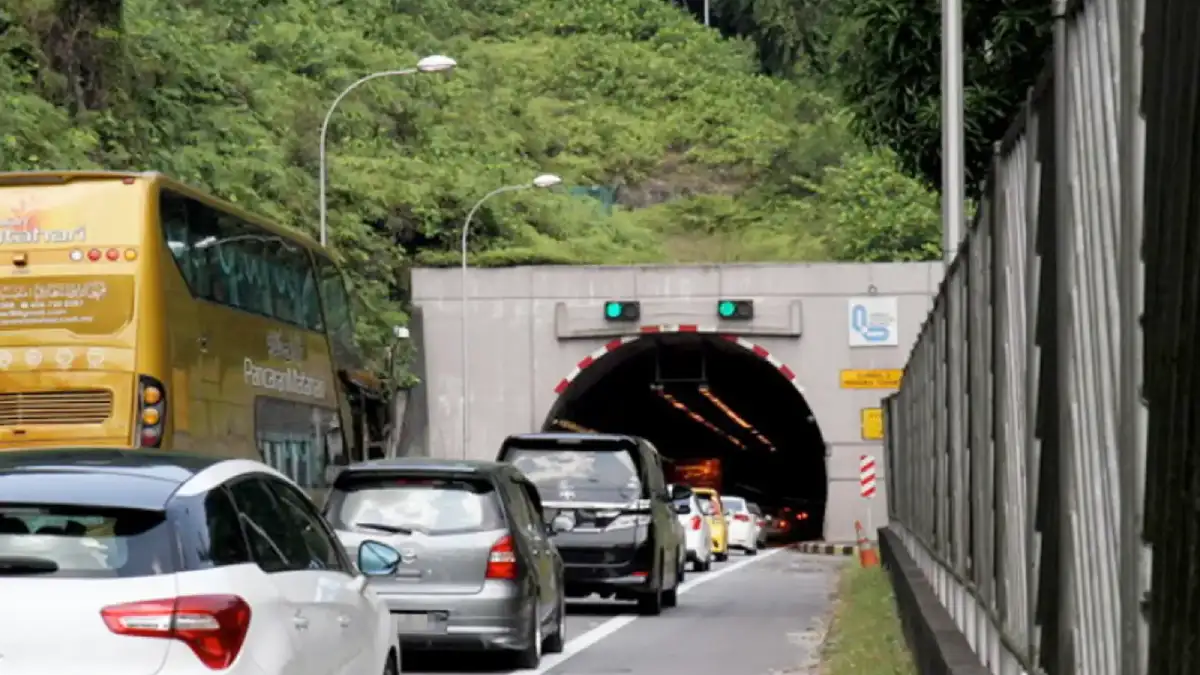A routine cleaning operation turned into a high-stakes emergency today near the Menora Tunnel along Malaysia’s North-South Expressway, as authorities safely detonated an unexploded mortar bomb discovered by a contract worker. The incident, which unfolded in the state of Perak, led to temporary road closures and traffic diversions, highlighting the persistent risks of unexploded ordnance in the region.
Discovery of Unexploded Ordnance
At approximately 9:30 a.m., a 51-year-old contract worker stumbled upon the mortar bomb while clearing trees and grass near the Menora Tunnel, a critical passage on the North-South Expressway connecting northern and southern Malaysia. Perak Police Chief Datuk Noor Hisam Nordin confirmed the find, noting the immediate deployment of a specialized team to handle the situation.
“The worker was clearing trees and grass when he came across the bomb” said Datuk Noor Hisam Nordin when contacted by local media. A team from the Perak Police, including the Bomb Disposal Unit (UPB), was dispatched to the site to assess and neutralize the threat.
The disposal operation, which took nearly an hour, was conducted on location with a reported blast radius of up to 200 meters. While no injuries or damage were reported, the operation underscored the delicate nature of handling such hazardous remnants, often linked to historical conflicts or military activities in the region.
Traffic Disruptions and Safety Measures
In response to the discovery, Plus Malaysia Berhad (Plus), the operator of the North-South Expressway, issued an alert on its X platform at 3:02 p.m., announcing the temporary closure of the Kuala Kangsar–Ipoh stretch in both directions. The closure was a precautionary measure to ensure public safety during the detonation process.
“Northbound traffic was diverted to the Ipoh Selatan Toll Plaza, while vehicles heading south were rerouted to the Kuala Kangsar Toll Plaza” said a Plus spokesperson. The southbound lanes were reopened by 3:44 p.m., with traffic flow returning to normal shortly after. The swift response by authorities and highway operators minimized prolonged disruption, though commuters faced temporary delays during the operation.
Historical Context of Unexploded Ordnance in Malaysia
The discovery of unexploded ordnance (UXO) in Malaysia is not an isolated incident. Remnants of past conflicts, including World War II and the Malayan Emergency (1948–1960), continue to surface across the country, often in rural or forested areas. During these periods, both Allied and Axis forces, as well as local resistance groups, deployed munitions that were not always accounted for or detonated. Construction projects, land clearing, and infrastructure maintenance frequently unearth such relics, posing risks to workers and residents alike.
While the specific origin of the mortar bomb near Menora Tunnel remains unclear, its location along a major transportation artery raises questions about how such items go undetected for decades. Authorities have yet to confirm whether the bomb dates back to a specific conflict or was discarded more recently, though investigations are likely underway to determine its provenance.
Public Safety and Ongoing Challenges
The incident serves as a reminder of the importance of vigilance and preparedness in areas where historical conflicts have left a dangerous legacy. The Malaysian government, in collaboration with local police and military units, has established protocols for handling UXO, including public awareness campaigns and training for workers in high-risk zones. However, the sheer scale of affected areas and the passage of time make comprehensive clearance a daunting task.
For communities and workers near the North-South Expressway, today’s events highlight the unpredictable nature of their environment. While the Menora Tunnel area is not typically associated with heavy UXO contamination compared to border regions or former battlegrounds, the incident underscores that no area can be entirely ruled out. Authorities may now face pressure to conduct further sweeps of the region to prevent similar discoveries from escalating into more serious threats.
Looking Ahead
As traffic resumes along the Kuala Kangsar–Ipoh stretch, questions linger about the broader implications of unexploded ordnance in Malaysia. How many more such relics lie hidden near critical infrastructure, and what measures can be taken to mitigate these risks? For now, the swift and professional response by the Perak Police and Plus Malaysia Berhad offers reassurance, but the incident is a stark reminder of a past that continues to intrude on the present.















